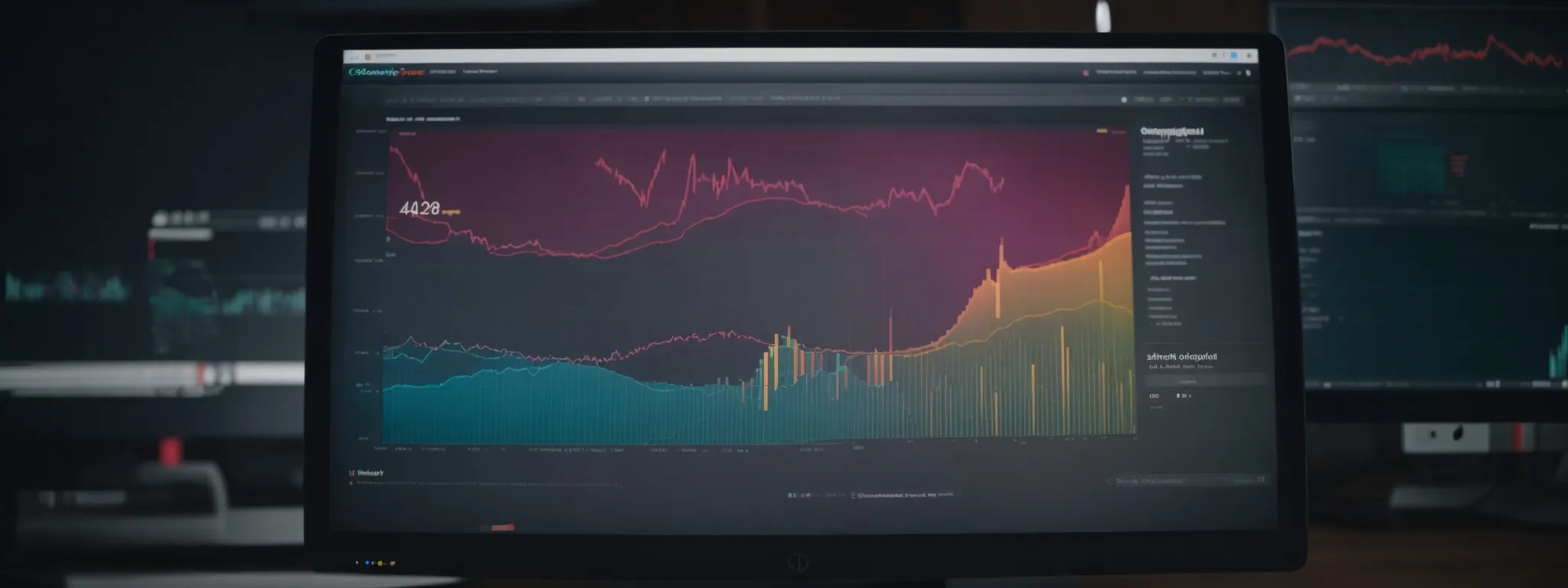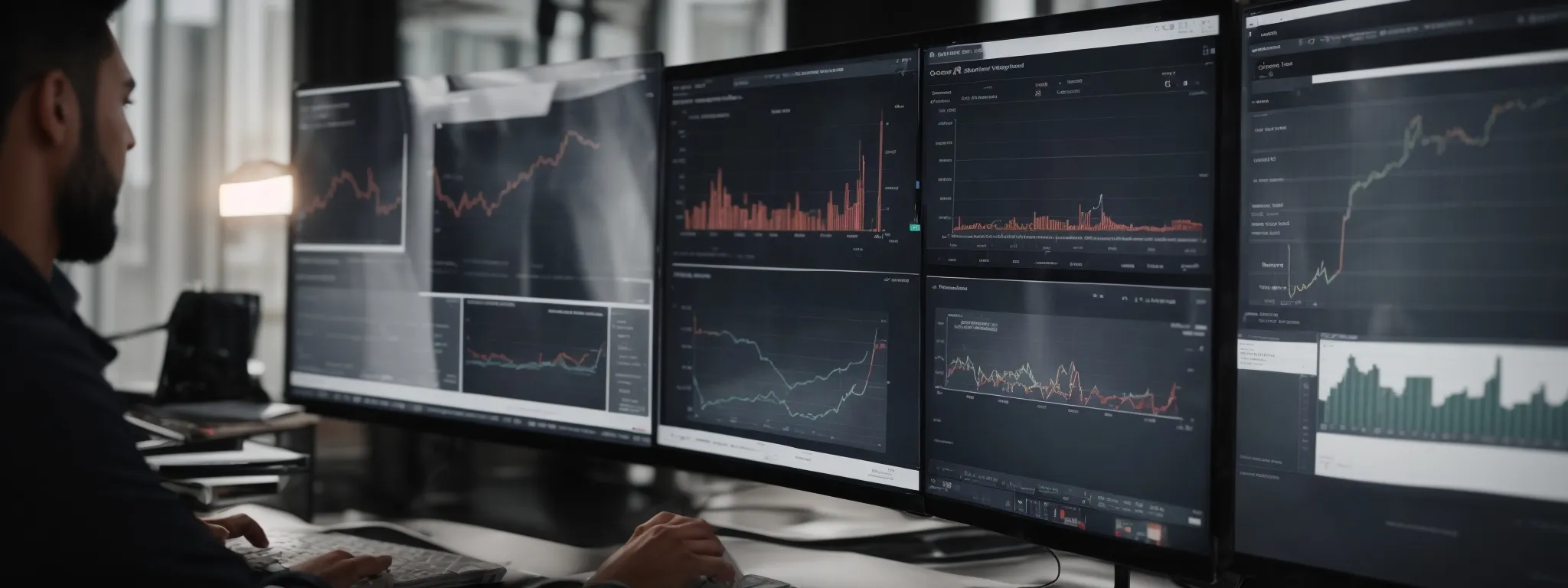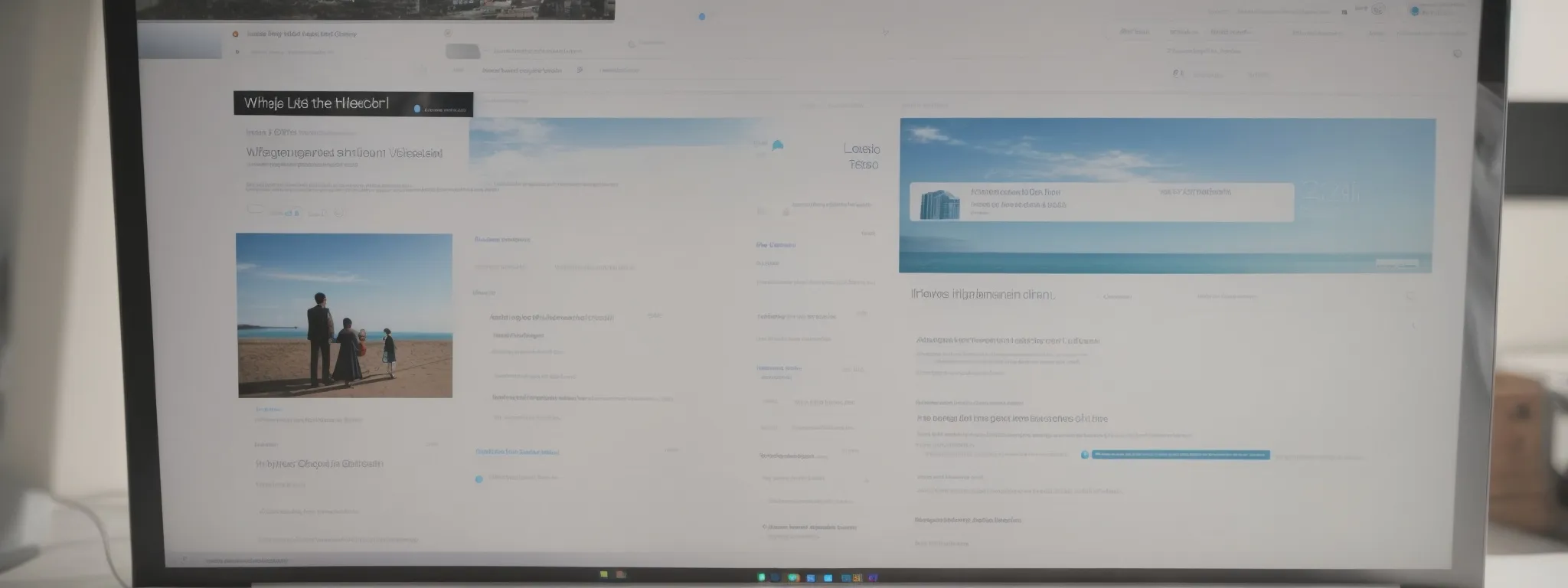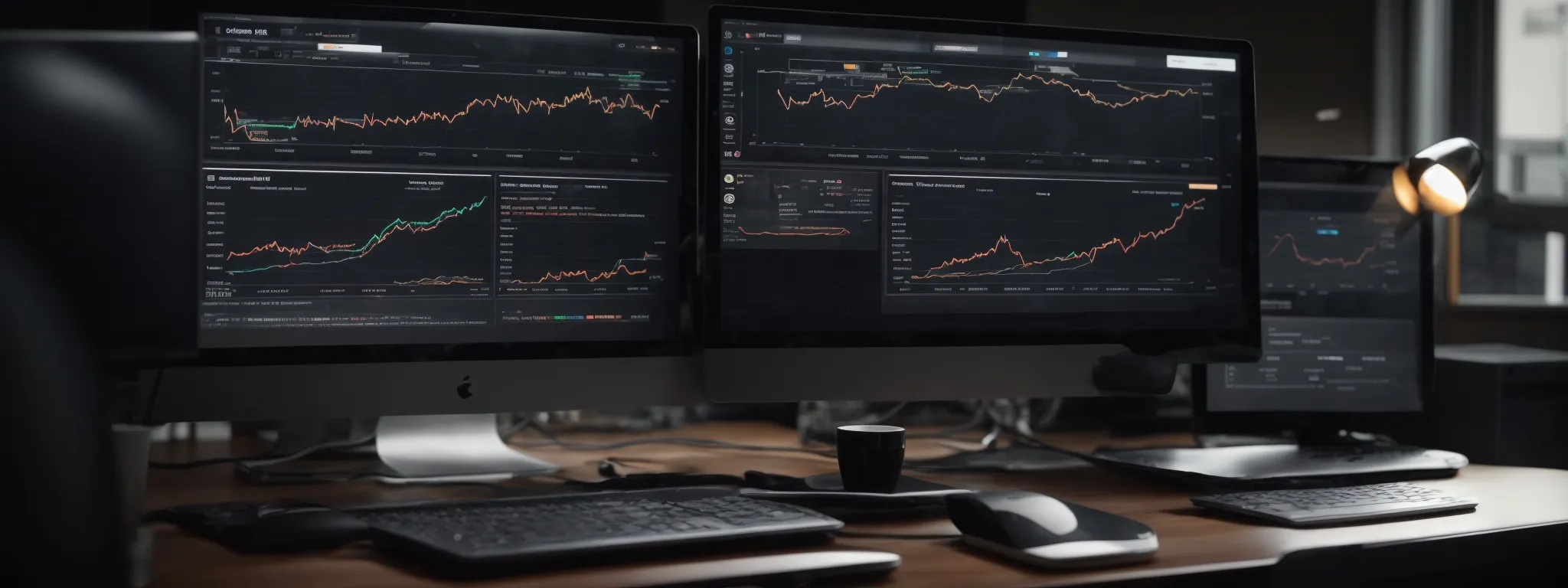How Does Paid Search Affect SEO?
The Interplay Between Paid Search and SEO: Impact and Strategies Navigating the nuanced landscape of digital marketing, brands must recognize the synergy between paid search and search […]
The Interplay Between Paid Search and SEO: Impact and Strategies
Navigating the nuanced landscape of digital marketing, brands must recognize the synergy between paid search and search engine optimization (SEO).
While paid search positions a product directly in front of potential customers, SEO cultivates organic visibility and credibility over time.
These strategies, though distinct, can create a powerful feedback loop when expertly aligned.
By leveraging insights from LinkGraph’s SEO services and Search Atlas SEO tool, marketers can uncover a holistic marketing strategy that maximizes visibility and engagement across search engines.
Keep reading to delve into how the meticulous integration of paid search and SEO can be a game-changer for businesses seeking to captivate their target audience.
Key Takeaways
- Paid Search and SEO Are Distinct Yet Interdependent Strategies Each Aimed at Maximizing Online Visibility
- Meticulous Use of Paid Search Data Can Inform and Refine SEO Strategies, Enhancing Overall Search Presence
- Investment in Paid Search Should Complement Rather Than Overshadow the Development of a Sustainable SEO Approach
- Google Maintains That Paid Search Does Not Directly Influence Organic Search Rankings, Ensuring Fair Search Practices
- An Integrated Search Marketing Plan That Balances Paid Search and SEO Efforts Can Result in a Magnified Impact on Brand Visibility
Understanding the Relationship Between Paid Search and SEO

The digital marketing realm is a vast enclave where numerous strategies coalesce, each vying for the attention of a discerning and dynamic audience.
Key amongst these strategies are Paid Search and Search Engine Optimization (SEO), counterparts in the quest for online visibility, yet each with its distinct methodologies and end-goals.
As professionals and businesses explore the definitions of Paid Search and SEO, they uncover a tapestry where the lines of convergence are as intriguing as the competitive landscape they operate within.
This introduction serves as a prelude to the intricate dance between Paid Search and SEO, where recognizing synergies and leveraging competitive insights becomes fundamental to crafting a formidable online presence.
Exploring the Definitions of Paid Search and SEO
Paid Search, often associated with pay-per-click (PPC) campaigns, encompasses the ads that appear atop or beside the organic listings on a search engine’s results page. It’s a model that hinges on advertisers paying a fee each time their ad is clicked, essentially buying visits to their site rather than attempting to “earn” those visits organically.
Search Engine Optimization, by contrast, is the art and science of enhancing a website’s visibility within the organic listings of a search engine. SEO involves optimizing site structure, content relevance, and link authority to attract traffic naturally, grounded in the understanding of a searcher’s intent and the search engine’s algorithms.
Identifying the Points of Convergence
Within the digital marketing ecosystem, Paid Search and SEO are not isolated strategies, but interdependent components that, when harmonized, can amplify a brand’s reach. The convergence point lies in their shared goal of maximizing visibility on a search result, with Paid Search providing immediate placement while SEO builds a foundation for long-term organic growth.
Another focal point of connection emerges from analysis and data utilization, as both approaches benefit from a deep understanding of the target audience’s search intent. Paid Search campaigns gather rapid insights on keyword effectiveness that SEO specialists can leverage to fine-tune content, ensuring a comprehensive strategy that addresses both immediate and enduring search queries.
Analyzing the Competitive Landscape
In analyzing the competitive landscape, it is crucial for businesses to acknowledge that Paid Search can offer a strategic advantage by providing immediate visibility among competitors on the results page. Businesses that adeptly balance the aggressive positioning of Paid Search with the nuanced, content-driven strategies of SEO are likely to achieve a more dominant stance in their market.
SEO, with its emphasis on long-term growth and establishing authority, plays a decisive role in how well a brand withstands market fluctuations and competitive pressure. Companies such as LinkGraph employ Sophisticated SEO Services to ensure that their clients not only understand their competitive environment but also thrive within it, leveraging SEO as a critical tool for sustainable brand fortification.
How Paid Search Campaigns Can Boost SEO Results

The strategic integration of Paid Search within a comprehensive SEO strategy offers a multifaceted arsenal aimed at strengthening a brand’s online footprint.
Through deliberate alignment, Paid Search campaigns can significantly heighten brand visibility and recognition, laying a foundation for a robust digital identity.
Campaign data also enriches SEO efforts by improving click-through rates for organic listings; with each click embodying a step toward solidifying a brand’s stature on the results page.
A crucial benefit of this symbiosis is the seamless sharing of keyword intelligence, empowering brands to harness insights across both paid and organic spectrums, fortifying search engine presence with tactical precision.
Increasing Brand Visibility and Recognition
Paid search campaigns serve as a catalyst for enhancing brand visibility, projecting the product or service directly into the line of sight of potential customers browsing search engine results. This exposure not only cultivates immediate recognition but primes the audience to associate the brand’s key terms with trustworthiness and relevance in subsequent organic search encounters.
The interplay between paid search initiatives and SEO practices extends the brand’s digital footprint, creating multiple entry points for consumer interaction. As ads drive the initial discovery, a well-optimized SEO strategy reinforces brand credibility and heightens the likelihood of organic listing prominence, fostering long-term audience recall and loyalty.
Improving Click-Through Rates for Organic Listings
A strategic fusion of Paid Search and SEO not only captures the immediate interests of users but also conditions the market for organic success. Through precise targeting and compelling ad copy, Paid Search enhances the brand narrative, leading to higher click-through rates (CTR) on organic search listings as users become more familiar with the brand’s offerings.
Enhanced by the immediacy of Ads, LinkGraph’s approach ensures clients benefit from the halo effect — where sustained visibility from paid placements bolsters the performance of organic results. This heightened user engagement reinforces the brand’s relevance, prompting search engines to reward the content with superior ranking positions on the results page.
Sharing Keyword Intelligence Between Paid and Organic
LinkGraph’s SEO services masterfully utilize the flow of intelligence gained from Paid Search to empower SEO efforts. By carefully analyzing the performance data from Paid Search initiatives, LinkGraph’s strategists discern keyword trends and user behavior patterns, refining SEO tactics to more accurately target the audience’s interests and queries.
These insights gleaned from Paid Search metrics pave the way for more strategic keyword optimization in organic content. LinkGraph harnesses this data to enhance search relevance, ensuring each SEO move is informed by real-world user interactions, ultimately elevating the brand’s positioning on the search engine results page.
Paid Search Data Shaping SEO Keyword Strategies

The fusion of Paid Search and SEO represents a strategic partnership in the digital marketing arena, where the insights gleaned from pay-per-click (PPC) campaigns become invaluable assets in shaping a brand’s organic search strategy.
Grasping the nuances of this relationship enables businesses to make informed decisions about keyword selection, refine their content in alignment with consumer response, and stay ahead of evolving search trends.
This approach promotes a synergy that benefits LinkGraph’s clients, ensuring SEO efforts are not only reflective of but also enhanced by the intelligence derived from Paid Search data.
As companies venture deeper into this diverse landscape, understanding how to leverage PPC data becomes vital for bolstering SEO initiatives, adapting to shifts in user behavior, and cementing an authoritative search engine presence.
Utilizing PPC Data to Inform SEO Keyword Selection
LinkGraph’s SEO experts recognize the value of Pay-Per-Click (PPC) data to inform and enhance keyword research for organic content. By meticulously tracking the performance of paid ads, they identify high-converting keywords and phrases that resonate with their target audience.
This data-driven approach allows clients to integrate proven keywords into their SEO campaigns, ensuring that their organic search strategy aligns with the preferences and language of their customers:
| SEO Component | Insight from PPC | SEO Action |
|---|---|---|
| Keyword Research | High-Converting PPC Keywords | Integrate into Organic Content |
| Content Optimization | Ad Copy Engagement Metrics | Refine Web Copy |
| Meta Descriptions | Clicked PPC Ad Descriptions | Adapt for Organic SERPs |
As these paid search insights are meticulously embedded into SEO efforts, clients experience an SEO strategy reinforced with the practical clarity of direct consumer interaction. The resulting SEO decisions are not guesses or estimates, but calibrated moves that aim at the heart of user search intent.
Learning From a/B Testing of Ad Copy for SEO Content
A/B testing of ad copy in Paid Search campaigns provides a veritable laboratory for SEO content refinement, according to the experts at LinkGraph. By observing which variations of ad wording achieve the highest engagement and conversion rates, LinkGraph’s clients gain invaluable insights into the language and messaging that resonates with their audience.
This empirical approach to copywriting bolsters SEO efforts, transforming guesswork into precision. Content creators can then employ these data-backed findings from LinkGraph’s meticulously conducted A/B tests to sculpt SEO content that echoes the successful ad copy, enhancing the relevance and appeal of organic listings.
Adapting to Search Trends Reflected in Paid Search
In the arena of digital marketing, staying agile means keeping a vigilant eye on the shifting sands of search trends that Paid Search data reflects. LinkGraph tailors SEO strategies to ride the wave of these evolving trends, ensuring that clients’ content remains topical and highly discoverable to search engine users seeking the latest information.
With meticulous analysis of Paid Search reports, LinkGraph discerns emerging patterns and preferences of consumers, responding with SEO adjustments that align content with the current zeitgeist. This ability to adapt swiftly to the dynamic ebb and flow of search demands places LinkGraph’s clients in a position of advantage, aligning their online presence with the pulse of the digital marketplace.
Can Paid Search Influence Organic Rankings?

In the intricate world of digital marketing, a question often arises: does Paid Search exert an influence on organic rankings?
The interconnection between Paid Search and SEO strategy continues to provoke discourse, tensed by myths and misconceptions.
Professionals and businesses hustle to distill fact from fiction, seeking clarity on how these two distinct aspects of search marketing can coexist and complement each other.
In the forthcoming analysis, the lens is focused squarely on dispelling the fog around Paid Search’s direct impact on SEO and elucidating Google’s official position on how, if at all, Paid Search intersects with organic search results.
Debunking Myths About Paid Search’s Impact on SEO
In the intricate dance between Paid Search and SEO, one enduring myth posits that the former directly boosts organic search rankings. Leading experts, including the team at LinkGraph, underscore the clear delineation: Google’s algorithms distinguish paid advertisement outcomes from organic search performance, disbanding any notion that Paid Search investments can manipulatively alter organic rankings.
Contrary to commonly held misconceptions, the infusion of capital into Paid Search campaigns does not curry favor with organic search algorithms. Crucially, LinkGraph educates clients on this distinction, channeling their resources into an autonomous but complementary SEO strategy that hinges on merit-based content quality and relevance, rather than any perceived financial leverage:
| SEO Myth | Reality |
|---|---|
| High Paid Search Spend | No Direct Impact on Organic Rankings |
| Paid Advertisement Position | Distinct from Organic Search Results |
Clarifying Google’s Stance on Paid and Organic Search Synergy
Google has made its stance clear: Paid Search and SEO operate on separate algorithms, and one does not directly impact the ranking of the other. The search engine giant asserts that the integrity of organic search is maintained irrespective of any paid advertising efforts, ensuring a fair and unbiased platform for users to find the most relevant search results.
This declaration from Google reassures businesses that SEO and Paid Search each require dedicated focus to achieve their unique objectives. While Paid Search targets immediate visibility, SEO concentrates on cultivating organic credibility and authority over time, shaping a user’s experience from the very first query:
| Marketing Aspect | Google’s Stance | Implementation Focus |
|---|---|---|
| Paid Search | No Direct Impact on Organic Ranking | Immediate Visibility and Clicks |
| SEO | Merit-Based Organic Credibility | Long-Term Authority Building |
Strategies to Align Paid Search With SEO for Maximum Impact

Mastering the symbiotic relationship between Paid Search and Search Engine Optimization requires a strategic approach, one that carefully blends immediate visibility with long-term organic presence.
It is here where the real prowess of an adept marketer comes to the fore, as they orchestrate a harmonious interplay that leverages the strengths of each to support the other.
To this end, aligning Paid Search with SEO necessitates adept coordination of search efforts, a mindful synchronization of content and keywords, and a judicious allocation of budget.
These strategies enable brands to dominate the digital landscape by ensuring that every dollar spent is an investment towards an integrated search marketing plan with magnified impact.
Coordinating Paid and Organic Search Efforts
Successful marketers know that telling a cohesive story across both paid and organic search channels is crucial. LinkGraph’s SEO services orchestrate this narrative by aligning ad copy with organic content, ensuring that messaging stays consistent and amplifies the brand’s voice across all user touchpoints.
By closely monitoring keyword performance in paid campaigns, LinkGraph’s strategists inform and optimize SEO endeavors, creating a seamless user experience from sponsored links to natural search results. This alignment is central to achieving a balanced and effective search marketing approach that caters to various stages of the consumer’s journey.
Synchronizing Content Creation and Keyword Targeting
LinkGraph’s tactical execution of synchronizing content creation with keyword targeting is an exemplar of sophisticated SEO strategy. By weaving targeted keywords into compelling content, the company ensures its clients’ narratives resonate with both search algorithms and user expectations.
- Identifying high-value keywords from Paid Search campaigns
- Creating engaging content that naturally incorporates these keywords
- Optimizing on-page elements to reflect keyword targeting
Aligning the creative process of content development with the analytical rigor of keyword targeting enables LinkGraph’s clientele to present a unified, search-optimized presence to their audience. This harmonious blend serves as a beacon, guiding the right visitors to the brand’s digital doorsteps.
Budget Allocation and Its Role in Integrated Search Marketing
A strategic allocation of budget between Paid Search and SEO is essential for an integrated search marketing approach. LinkGraph’s expert services guide clients in smartly distributing investments to capitalize on the immediate results of Paid Search while simultaneously nurturing the ongoing growth of SEO efforts for compounded success over time.
By advising on an optimal budget distribution, LinkGraph’s seasoned strategists ensure that clients do not overspend on temporary Paid Search gains at the expense of longer-term SEO benefits. This balanced approach preserves resources to develop a sustainable, organic online presence, anchoring a brand’s competitive stance in the digital marketplace.
Measuring the Impact of Paid Search on SEO Performance

In the domain of digital marketing, discerning the tangible effects of Paid Search on the health and efficacy of SEO initiatives is paramount.
Marketers and brands wielding this knowledge can refine campaigns to an exquisite level, ensuring each search marketing facet nurtures the other.
The arsenal for such an endeavor consists of advanced tools and precise metrics that are meticulously employed to unveil the nuances of cross-channel performance.
By establishing robust Key Performance Indicators (KPIs), and delving into an analysis of traffic, conversions, and return on investment, professionals can distill a rich understanding of their integrated strategies.
These insights are the compass by which LinkGraph guides its clients toward a holistic understanding of their campaign’s reach and resonance.
Tools and Metrics for Evaluating Cross-Channel Performance
Evaluating the interplay between Paid Search and SEO requires a robust set of tools and metrics designed to track cross-channel performance. Utilizing data-driven analysis, LinkGraph’s SEO services enable clients to clearly discern the influence of paid campaigns on organic search results through an array of sophisticated tools that offer actionable insights.
Metrics such as traffic attribution, conversion rates, and cost-per-acquisition (CPA) are pivotal in assessing the effectiveness of Paid Search in complementing SEO efforts. LinkGraph meticulously translates these numbers into strategic advice, providing a roadmap for clients to optimize their marketing spend across channels:
- Assessing the uplift in organic traffic coinciding with Paid Search campaigns
- Comparing conversion rates to gauge the quality of traffic from paid versus organic sources
- Evaluating CPA to determine the cost-efficiency of paid ads in supporting organic growth
Establishing Key Performance Indicators (KPIs) for Integrated Campaigns
Establishing Key Performance Indicators (KPIs) for integrated campaigns is critical for marketers aiming to navigate the complexities of Paid Search alongside SEO. LinkGraph’s SEO services excel in defining bespoke KPIs that align with a brand’s specific goals, ensuring that each facet of a campaign is geared toward measurable success.
By focusing on tailored KPIs, LinkGraph assists clients in understanding the nuanced effects of Paid Search on organic performance. This allows for precise adjustments to be made, whether improving keyword strategies or reallocating budgets, solidifying a cohesive digital marketing strategy that fully harnesses the power of both paid and organic search.
Analyzing Traffic, Conversions, and ROI for Comprehensive Insights
An incisive analysis of traffic and conversion rates yields profound insights into the synergy between Paid Search and SEO. Such scrutiny clarifies not just the volume of visitors reaching a site, but also their behavior—distilling which source, paid or organic, engenders deeper engagement and more meaningful interactions.
The return on investment (ROI) from Paid Search campaigns, when cross-referenced against SEO performance, offers a granular view of a campaign’s effectiveness. It allows professionals at LinkGraph to discern the true value gained from each marketing dollar spent, optimizing and aligning strategies to enhance the overall marketing ROI:
- Evaluating the influence of paid traffic on overall website engagement.
- Assessing the contribution of SEO to cost-effective lead generation and conversion.
- Establishing the correlation between Paid Search spend and SEO-driven growth in organic metrics.
Conclusion
The intricate interplay between Paid Search and SEO is fundamental in shaping a robust online marketing strategy.
Paid Search delivers instant visibility and rapid insights into keyword performance, directly benefiting SEO’s quest for long-term organic growth.
By sharing keyword intelligence and A/B testing data from PPC campaigns, brands refine SEO strategies and enhance content relevance, fortifying their search engine presence with tactical precision.
Moreover, alignment of these strategies ensures that Paid Search efforts complement and magnify the reach of SEO, rather than compete for resources.
A strategic budget allocation between the two ensures successful synergy, making the most out of immediate Paid Search gains while fostering sustainable organic SEO development.
Evaluating the effectiveness of such integrated campaigns through precise tools and metrics allows for a clearer understanding of the impact on traffic, conversions, and ROI.
While Paid Search does not directly influence organic rankings, its data-driven insights and immediate reach are valuable in crafting a comprehensive SEO strategy poised for success.
In summary, leveraging the strengths of both Paid Search and SEO in a unified approach maximizes brand visibility, enables smart content optimization, and solidifies a competitive edge in the digital marketing landscape.



















































































